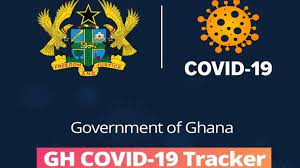The Ghanaian Ministry of Education reportedly spent GHC 2 Million on a COVID-19 tracker software that was never deployed, as stated in a report by The Fourth Estate.
The COVID-19 tracker app was released in April 2020 with the intention of tracking incidents of COVID-19 that occurred in junior and senior high schools located in Ghana.
However, a report on the country’s expenditures on COVID-19 that was compiled by the Auditor General states that the application was never actually put to use.
The application was developed as part of the Ghana Accountability for Learning Outcomes initiative (GALOP), which was a five-year initiative with the goal of improving the quality of education in low-performing basic education schools and strengthening the education sector’s equality and accountability in Ghana. The project was responsible for the development of the application.
Despite the fact that the app had been developed, the audit found that it had never been deployed. The audit found that the IT infrastructure worth 16 million Ghana cedis that had been acquired through GALOP had remained unused.
Read also: Ghana approves national space policy for sustainable development
The overarching context
The Fourth Estate submitted a request for more information concerning their COVID-19 to the Ministry of Education under the Right to Information (RTI) law; however, the Ministry has not been forthcoming with the requested information.
What they have to say about It
“The anomaly was attributed to the late deployment of these tools, lack of consultation and coordination between the procuring Agencies (Ministry of Education and Ghana Library Authority and the user Agency (Ghana Education Service),” the report indicated.
About Ghana’s educational system
The 6-3-4-4 System is used in Ghana. The school system had had a 6+3+3+4 structure since 1987 when changes were made. This means 6 years of elementary school, 2 stages of secondary school, each lasting 3 years (junior secondary and senior secondary), and 4 years of college (bachelor’s degree courses).
During the first three years of school, students can study in any of the eleven local languages. After that, English is the main language of instruction. Students keep learning both a Ghanaian language and French in school until at least the ninth grade.
There are three parts to the Ghanaian education system: basic education, secondary education, and higher education. The school year usually lasts from August to May, which is 40 weeks for elementary and high school and 45 weeks for junior high. Most lessons are given in English.
In kindergarten, there are two types of classes: pre-kindergarten, for kids ages 4 to 5, and kindergarten, for kids ages 5 to 6. The goal of kindergarten is to get kids ready for first grade by teaching them letters, words, math ideas, and important social skills.
On January 21, 2021, after President Nana Akufo-Addo was re-elected, he moved Dr. Yaw Osei Adutwum, who had been Deputy Minister of Education for 4 years, to Minister for Education.
Ghanaians have a very high opinion of their education system, giving it a score of 7.03 out of 10. This is the fifth-best score of all the countries that were surveyed, after Finland (8), Switzerland (7.2), Singapore (7.1), and India (7.1).
In Cape Coast, Ghana, there is a Methodist high school called Mfantsipim.It is Ghana’s oldest school. It started with Wesleyan High School, which was the first high school to open on the Gold Coast, which is now Ghana. It opened on April 3, 1876.
People in Ghana are able to go to elementary school, junior high school, and senior high school for free. The SHS helps kids get ready for college and university. So far, the Free SHS programme has helped about 1.6 million young people.
Compared to other African countries, the rate of crime in Ghana is not very high. Also, Ghana is a country on the region of Africa that is mostly peaceful. Ghana is one of the cleanest countries in Western Africa. Ghana has nice weather that makes it a good place to study because it is quiet and calm.
